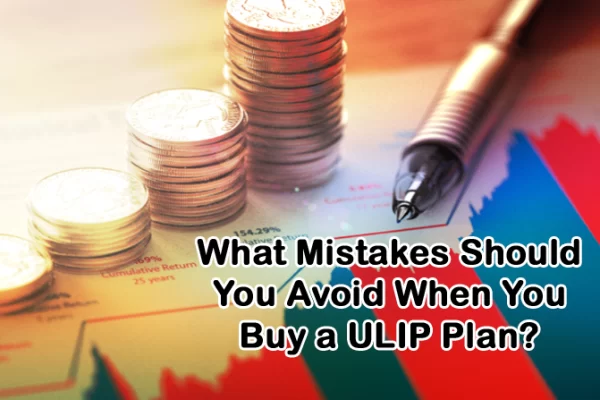No matter how much we want it to happen, very few people actually win the lottery and become billionaires. For those who don’t have money in abundance, getting through life can really be tricky, especially if some unexpected expenses occur. It can happen that you need cash for a specific purpose, and you just don’t have that money on you. What can you do then? Personal loans can actually be a really good option, but there are some strings attached, and you should consider all factors before you determine the type of loan that would be right for you.
Table of Contents
The basics – how these loans work
If you ever want to borrow a certain amount of money and take it all at one time, it’s called an instalment loan. After that, you are given instalments – a set number of payments through which you are meant to repay the loan. There are also instalment loans with set payment amounts that don’t change for the duration of the loan too. If you have a variable interest rate, however, the amount can change. A special kind of instalment loans is a personal loan, where you can take a certain amount of money and pay it back through monthly instalments with interest. The life of the loan is usually somewhere between 12 and 84 months, and once you’ve paid it off in full, the account you have is closed, and if you happen to need more money, you need to file an application for a new one.
The difference between a secured and unsecured loan
When it comes to personal loans, there are two basic types: secured and unsecured loans. Secured loans are the ones that are backed by some sort of collateral. Collateral can be in the form of a savings account you have, personal real estate, or even a vehicle. This collateral ensures that if you’re unable to make your payments regularly and on time, the lender will have the right to claim the said asset as payment for the loan you took. Unsecured loans, on the other hand, aren’t backed by collateral, and the lenders themselves decide whether or not you qualify for the loan. They do this based on your financial history, and if you don’t qualify for such a loan or you would like the one that has a lower interest rate, there are some lenders who are also willing to offer secured options.
Applying for a loan
There are different places where you could inquire about getting a personal loan, such as your local bank or credit union that you already know. The bank will make their own inquiries, and they will most likely going to ask you to tell (and prove) them what you’re going to use the money for. What is more, they might even offer you a better loan that is better suited for your needs. There are also different places where you could find lenders, but just like with any other loan, you need to choose them wisely and not borrow more than you actually afford to repay. You need to carefully calculate your potential monthly payments because this way, you will ensure that you can make those payments from your budget. Also, compare rates from different lenders before settling on a particular one.
How much money can you borrow?
This happens to be the most common question out there, but there is never a set answer. There are different criteria that need to be taken into consideration: if this is your first loan, the purpose of the loan, as well as your creditworthiness. If the creditors are confident that you are going to pay them back the money they are planning on lending you, you can borrow pretty much any sum you need. The key is to find the lowest personal loan rates on the market and get the loan that will help you at the moment, but which you can pay back without much trouble. When it comes to loan amounts, they can vary anywhere from $1,500 to $50,000, or even as much as $100,000. Remember that just because you know someone who got a big loan, it doesn’t mean that you will be able to get it too.
Loan amount disbursal
For most people, personal loans will get disbursed within 7 working days of the day you applied for the loan to the lender. Once your loan is approved, there are two ways you can get your money: either you will receive an account payee cheque/draft that is equal to the amount you have loaned, or the money will be deposited automatically into your savings account. The latter is usually done electronically and doesn’t require any work on your behalf. When talking to your lender, feel free to ask them which method they usually use so you can prepare.
Payment periods
Once you take out a personal loan, you will get a set period of time during which you will have to repay it. These times are not the same for everyone, and they are usually 12, 24, 36, and 48 months, but there are instances where personal loans have been taken for more than 60 months too. If you choose to have longer repayment periods, it means that your monthly loan payment will be lower, but as a result, you will have to pay more in interest too. If you choose a shorter repayment period, the monthly payment will be high, but interest rates will be lower. There are also open loans, but if you have one and would like to have another loan or a credit card, it can affect your ability to get approved for it. Keep in mind that there are also personal loans that have penalties if you pay off your debt early, so before you take out a loan, pick the shortest repayment period that you can afford.
Revolving credit card balance vs. a personal loan
We already mentioned that the amount of money you can borrow for a personal loan is fixed and that the better your credit score, the more money you can borrow. Keep in mind that most banks actually limit the amount of money you can borrow, even if you have an excellent income, and you’re a highly qualified borrower. With a revolving credit card balance, you can take money again and again as you make payments, but it’s not the case with a personal loan. When you make payments toward the loan, the balance is reduced, but you can’t take more money, and once you pay it off in full, your account is closed. In case you qualify for a 0% intro period credit card, you should take the offer; otherwise, remember that rates on personal loans can be a cheaper option. Also, the limits on how much money you can take out on a personal loan usually higher.
Hard vs. soft inquiry
When you decide to apply for a personal loan, the lender will have to pull your credit. This is a standard part of the application process, and it’s known as a hard inquiry. When this happens, your credit scores become lower by a few points in the very beginning. This hard inquiry stays on your credit reports for approximately two years. People generally tend to look around searching for the best rates, and if there are lenders who you have borrowed from before, you likely have an account there. When they review your credit, it’s called a soft inquiry, and fortunately, this doesn’t affect your credit scores in the slightest. If you need to have your rates checked, consider having it done by lenders who are able to make soft inquiries because these will not impact your scores.
The right reasons for borrowing
If you ask any economy experts, they will gladly share the info that personal loans are not to be taken out lightly. Before you decide to apply for one, try to determine if the need for borrowing is unavoidable. People choose to borrow to renovate their homes, buy a new car or a new phone, or to go on a long vacation in an exotic location, but these reasons are pretty superficial, and personal loan is not the right choice. Personal loans are taken out by people who are facing emergencies of some sort (medical, for example) and whose needs are great and urgent, or if they want to pay off their credit card debts.
Consolidating high-interest debt
If you’re looking for ways to deal with your high-interest debt, personal loans might be helpful because they give you a way to consolidate debt into a single payment. Compare your existing debt and interest rates of personal loans and, if possible, look for a loan with a lower interest rate than your debt because this will allow you to pay it off much faster. If you, as a potential borrower, have a good credit and have two credit cards with a high-interest rate, you could save thousands of dollars if you decide to roll both these debts into one single loan; especially if the interest rate is lower than for your cards and you pay it off within a few years.
Mind the costs
No matter how appealing and affordable personal loans may seem, they happen to be the costliest forms of loans out there because their interest rates go anywhere from 18% to 24%. If you do decide to borrow money, you will also need to pay a processing fee for the loan application. This fee is usually 1-3 % towards the costs incurred by the lender, and it’s not something to be taken lightly. There are short-term personal loans that are to be paid off within a year, and these usually come with a pre-payment charge that varies between 2 and 5 per cent.
Part-payment, prepayment, and preclosure
Part-payment refers to the amount that happens to be less than the full loan principal amount. Part-payment is made before the due date of the loan amount. Prepayment, on the other hand, is what happened when you manage to partly pay off your loan before its due date as per the EMI schedule. The prepayment amount isn’t the same for everyone, and it might be the same as the total due amount. There are also certain lenders who will charge prepayment (usually 2-5% of the loan amount), and remember that many banks require you to pay a certain amount before you’re allowed prepayment. Preclosure is the term used for the scenario when a person completely pays off a personal loan before the loan tenure has ended. There are also preclosure charges, which are quite similar to prepayment charges.
Be wary of scams
When you are in dire need of money, you will look anywhere and often overlook red flags. No matter how much you need that personal loan, be on your guard and be careful not to fall for a loan scam. Loan scams are quite common because people in need of money can let their guards down. If you have a bad credit history, you will, of course, look for a lender who will look past that and who will approve you nonetheless. That being said, if you do meet a lender who guarantees or even promises you approval without bothering first to check your credit, it is most likely a scam. Also, if the potential lender asks you to send money to secure the loan and use a prepaid card or wire transfer, it’s a big red flag, and you shouldn’t go through with it.
Over the years, people have been turning to personal loans when they need cash, and the number of people who takes them keeps increasing every year too. If you are a consumer with good credit, the conditions are going to be more appealing to you, and their interest rates are going to be much lower than for someone else. Still, keep in mind that personal loans aren’t always the best solution no matter how appealing the offer might seem at first, and you should do some research before you make your final decision.











